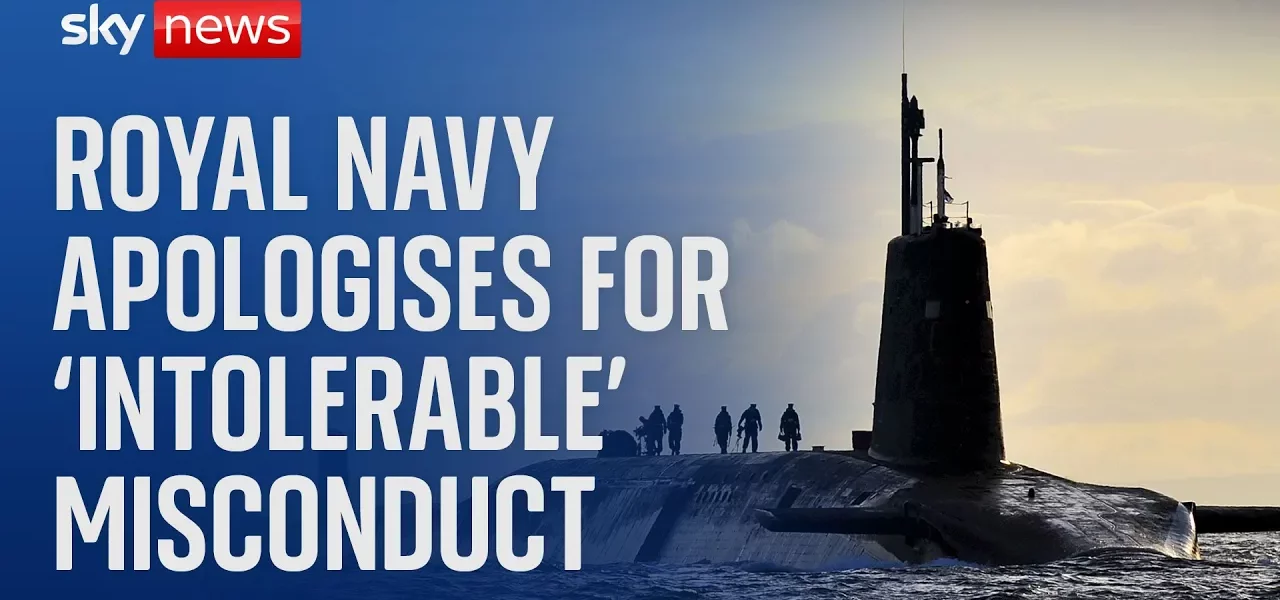Royal Navy Submarines Misconduct Report: Key Findings and Apologies

This article delves into the recent allegations of misconduct within the Royal Navy submarines, including instances of misogyny and bullying, alongside the Navy’s response and commitment to reform. We explore the implications of these findings and the call for substantive changes within the military culture.
Introduction
In a significant development that has captured public attention, the Royal Navy has issued an apology following a damning report addressing allegations of misconduct, including misogyny and bullying within its submarine service. The report stems from an internal inquiry initiated after former Submariner Sophie Brooke bravely shared her experiences of harassment and abuse. This article explores the core findings of the report, the responses from Navy leadership, and the broader implications for military culture.
The Allegations: A Culture of Misconduct
The investigation into the Royal Navy’s submarine service has uncovered a troubling culture marked by various forms of misconduct. Sophie Brooke’s allegations, which initiated this inquiry, revealed a pervasive environment of:
- Sexual assault
- Sexual harassment
- Misogyny
- Bullying
Brooke’s testimony highlighted the severity of these issues, detailing personal accounts that spanned from minor sexual assaults to horrific acts such as rape. The impact of these experiences on her mental health was profound, leading her to self-harm as a coping mechanism.
Investigation Findings
The lengthy investigation, lasting two years due to the complexity of the allegations, resulted in a heavily redacted report that confirmed multiple instances of unacceptable behavior. Some key findings include:
- A total of 71 specific allegations were documented.
- 43 witnesses were interviewed as part of the investigation process.
- Three individuals were discharged from the Navy as a consequence of their actions.
Admiral Saen Key, the First Sea Lord, acknowledged the findings as an “inflection point” for the Navy, emphasizing the need for substantial reforms to address these issues head-on.
Admiral Saen Key’s Response
In light of the investigation’s findings, Admiral Saen Key publicly apologized to Sophie Brooke and other personnel who have experienced misconduct. His statement underscored several critical points:
- The acknowledgment that misogyny and bullying are intolerable within the Navy.
- A commitment to ensure accountability for those found culpable in the investigation.
- A personal and unreserved apology to Brooke for the suffering she endured.
Admiral Key’s response is seen as a necessary step towards rebuilding trust and establishing a safer environment for all personnel within the Navy.
Brooke’s Call for Change
Despite the Navy’s apologies and acknowledgment of the issues, Sophie Brooke remains cautious about the institution’s commitment to enacting real change. She has expressed concern that the report may be perceived as a “token gesture” rather than a genuine attempt to reform the culture. Brooke’s motivations for coming forward extend beyond her personal quest for justice; she aims to:
- Highlight a culture that has allowed misconduct to persist.
- Encourage meaningful changes within the elite branches of the Armed Forces.
- Provide a voice for others who have suffered in silence.
Her hope is that the findings of this report will act as a catalyst for systemic change, fostering an environment that values respect and equality.
Conclusion
The recent revelations about misconduct within the Royal Navy submarines have sparked crucial conversations about military culture and the imperative for change. The findings of the investigation, coupled with Admiral Saen Key’s public apology, mark a significant moment in addressing systemic issues of misogyny and bullying. However, as Sophie Brooke and many others have pointed out, the real test lies in the Navy’s ability to implement lasting reforms that ensure safety and respect for all personnel. It is vital that the Royal Navy not only acknowledges these issues but also takes decisive action to foster a culture of accountability and support.
For those interested in learning more about military culture and initiatives for reform, consider exploring our related articles on military ethics and organizational change.
“`




